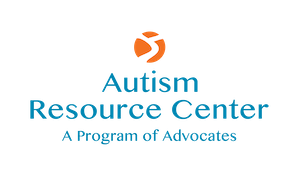Thirty years ago, I had my first son, and although he wasn’t diagnosed with autism for another almost 4 years, even as an infant, he did not want to leave the nursery, never mind our house. As the months went on, I diagnosed us both as having sensory deprivation. I was a pediatric OT and I saw an article about OTs who were helping mothers and infants with sensory differences leave their homes. I was relieved to know that it wasn’t just me, and it gave me hope that I could do something to help us both. From then on, every day, we ventured more and more from the nursery to the other parts of our small home, to our backyard, to my mother’s home, to a friend’s home, to the playground, to children’s museums.
There were some utter failures along the way: family gatherings, day care, music and gym classes, preschools, and then came the diagnosis that changed our lives forever. My unspoken fears grew as my second son was also diagnosed with autism in a matter of months and a new baby girl came. Now I had 3 children: ages 4, 2 and a newborn, and leaving our home was nearly impossible. I remember having a favorite white t-shirt that read “Mission Possible” that featured pictures of people with disabilities included in the community. I used to wear it a lot when I took my children out in the summer with at least 2 home program staff. My goal was to include my children in the community and to give them time every day in the natural environment to help their sensory processing. For many years now, I have maintained this goal with my adult children with autism, and it is the best way I know to improve sensory issues and quality of life.
Here are some tips to set up your outing for success: Bring help if you have it. Keep a positive attitude. Stay calm by taking deep breaths! Hold your head up and tell yourself that you have got this! Even if it all seems to be going wrong, let your body language show the staring people that you know exactly how to handle this situation! Do not make eye contact with strangers to avoid the stares of the ignorant. If anyone says anything negative, simply say, “My child has autism” and walk away. My favorite story using this method is when my mother took my first son to a small circus in town, and he reached into another child’s snow cone and put the handful of snow into his own mouth. My mother said, “I’m sorry but he has autism, and he is not supposed to have that” as though some how they were at fault.
Know though that there are always people who understand, who are smiling at you in the worst moments, and who will help you if you ask. My younger son jumped onto the Boston Harbor at the New England Aquarium one December when he was 4 and when I asked for help had several strangers rescue him from the water! I think he inspired an urban legend about a boy with autism who visited the Aquarium and smuggled home a penguin that they later found in their bathtub. Sadly, my son only brought home a vicious stomach bug, but I love the urban legend all the same.
Prepare, prepare, prepare. Pack carefully for your child’s needs but bring only as much as you can comfortably carry in a backpack, stroller, or a wagon. Have food and drinks with you. Bring favorite toys especially if they have a sensory component. Bring ear plugs, headphones, sunglasses, or hats if your child tolerates these to block sound and light. Dress your child in favorite comfortable clothes. Wear sneakers yourself for traction during a quick getaway (plan B) and have a small organized backpack because who doesn’t feel in total control and ready for all situations with that? Plan to stay only as long as your child tolerates. Do not prolong your visits. Keep them short and keep going back to favorite places that your child enjoys. Avoid the crowded noisy places. Find the quiet calming places. Find places that match your child’s interests. Join the Autism Resource Central Family Fun activities, so you don’t feel alone and can try out new adventures with our support.
Enjoy all the moments along the way!





